Folic Acid for Fertility & Pregnancy, also known as vitamin B9 or folate, plays a crucial role in human health, especially in pregnant women and those contemplating pregnancy. Essential for cell growth and DNA formation, this water-soluble vitamin is particularly important during phases of rapid development, such as those observed during pregnancy.
Folic acid supplementation has become a cornerstone of medical recommendations for women who are pregnant or of childbearing age. This importance is underlined by the potentially serious consequences of a deficiency in this vitamin. One of the major problems associated with folic acid deficiency is the increased risk of neural tube defects in the foetus, such as spina bifida or anencephaly. These malformations can lead to severe or even fatal complications, affecting the child’s neurological development.
In addition to its role in preventing birth defects, folic acid also helps to prevent anaemia in the mother, by promoting the formation of healthy red blood cells. In addition, folic acid deficiency has been linked to high levels of homocysteine in the blood, a potential risk factor for cardiovascular disease.
Faced with these challenges, folic acid supplementation has become a global public health strategy, often initiated before conception and continued throughout pregnancy. The aim is to ensure sufficient intake to support optimal development of the foetus and maintain the mother’s health. This introduction will explore in depth the crucial aspects of folic acid, before, during and after pregnancy, highlighting its indispensable role and the preventive measures to be adopted to ensure a healthy, complication-free pregnancy.

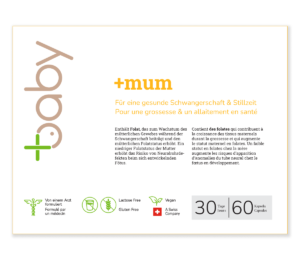
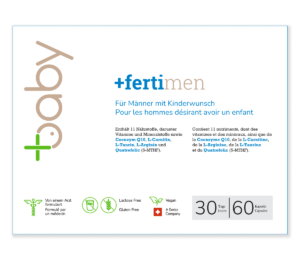
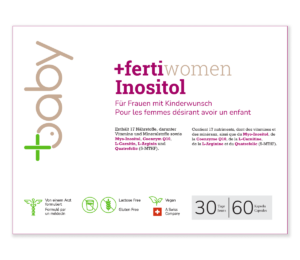
Folic acid, also known as vitamin B9, is a water-soluble vitamin essential for many biological processes. Folates, the natural form of vitamin B9 found in foods, play a key role in DNA synthesis and cell repair. A form derived from folic acid, methyltetrahydrofolate (MTHF), is the biologically active form of the vitamin in the body.
Folic acid, often found in food supplements and fortified foods, differs from MTHF in its chemical structure and metabolism. Folic acid must be converted to MTHF by the body in order to be used effectively. This conversion is crucial, as MTHF plays a direct role in metabolic processes such as the synthesis of methionine and the regulation of homocysteine, an amino acid linked to certain cardiovascular and neurological diseases.
In metabolism, folic acid and MTHF are involved in the conversion of homocysteine into methionine, an essential amino acid. This process is vital for protein production and the formation of red blood cells. A deficiency in folic acid can lead to an accumulation of homocysteine, associated with increased risks of cardiovascular disorders and complications during pregnancy.
The role of folic acid in the development of the nervous system is particularly significant. During pregnancy, an adequate amount of folate is crucial for the correct closure of the foetus’ neural tube. A folic acid deficiency during this critical period can lead to congenital malformations such as spina bifida, where the spinal column and cord do not form properly, potentially causing permanent disabilities. Folic acid supplementation is therefore strongly recommended to prevent these neural tube defects, underlining its importance not only for the health of the mother but also for the optimal neurological development of the foetus.
The choice of form of vitamin B9 supplementation is crucial to maximising its benefits, particularly when it comes to MTHF (methyltetrahydrofolate) as opposed to synthetic folic acid. MTHF, being the bioactive form of folic acid, can be used directly by the body without the need for conversion. This characteristic makes it particularly effective and important for certain populations.
A major consideration when choosing MTHF is that some people have a genetic variant (polymorphism) of the MTHFR (methylenetetrahydrofolate reductase) enzyme. This genetic variant can reduce the efficiency with which their body converts folic acid into its active form, MTHF. As a result, in these individuals, supplementation with standard folic acid may not be totally effective, and may even be potentially problematic, as unmetabolised folic acid may accumulate in the body.
Furthermore, MTHF has additional advantages over synthetic folic acid. It is better absorbed and more directly involved in key metabolic processes such as methionine synthesis and homocysteine regulation. This is particularly important for cardiovascular and neurological health, both for the mother and for foetal development.
In addition, studies suggest that MTHF supplementation may reduce the risk of side effects or allergic reactions sometimes associated with synthetic folic acid, making MTHF a safer and more effective option for a wide range of populations, including those with specific sensitivities or genetic predispositions.
In summary, although folic acid is widely used and recommended, consideration of the bioactive form, MTHF, offers a more effective and personalised alternative for vitamin B9 supplementation, especially for pregnant women or those planning a pregnancy, with a view to optimising maternal and foetal health.
Plusbaby, aware of the importance of reproductive health, is committed to providing couples wishing to conceive with the very best products. This is reflected in their +fertimen and +fertiwomen ranges, designed specifically to optimise male and female fertility. These supplements contain MTHF (methyltetrahydrofolate), the most bioactive form of folic acid, ensuring maximum absorption and enhanced efficacy. Recognising the crucial importance of MTHF in foetal development and reproductive health, Plusbaby also includes this form of folate in its Prenatal +mum vitamins. These products are designed to provide optimum support for reproductive health, from the preparation of pregnancy right through to term, paying particular attention to the specific nutritional needs of pregnant women and couples in the conception phase.

Due to the high frequency of the MTHFR gene mutation, many women are folate deficient, with levels below recommended levels. Folate deficiency can also develop as a result of a diet low in folate-containing foods, particularly dark green vegetables, citrus juices and foods.
In addition, folate deficiency can be difficult to detect because symptoms are generally non-specific, but include mouth sores, swollen tongue, fatigue and grey hair.
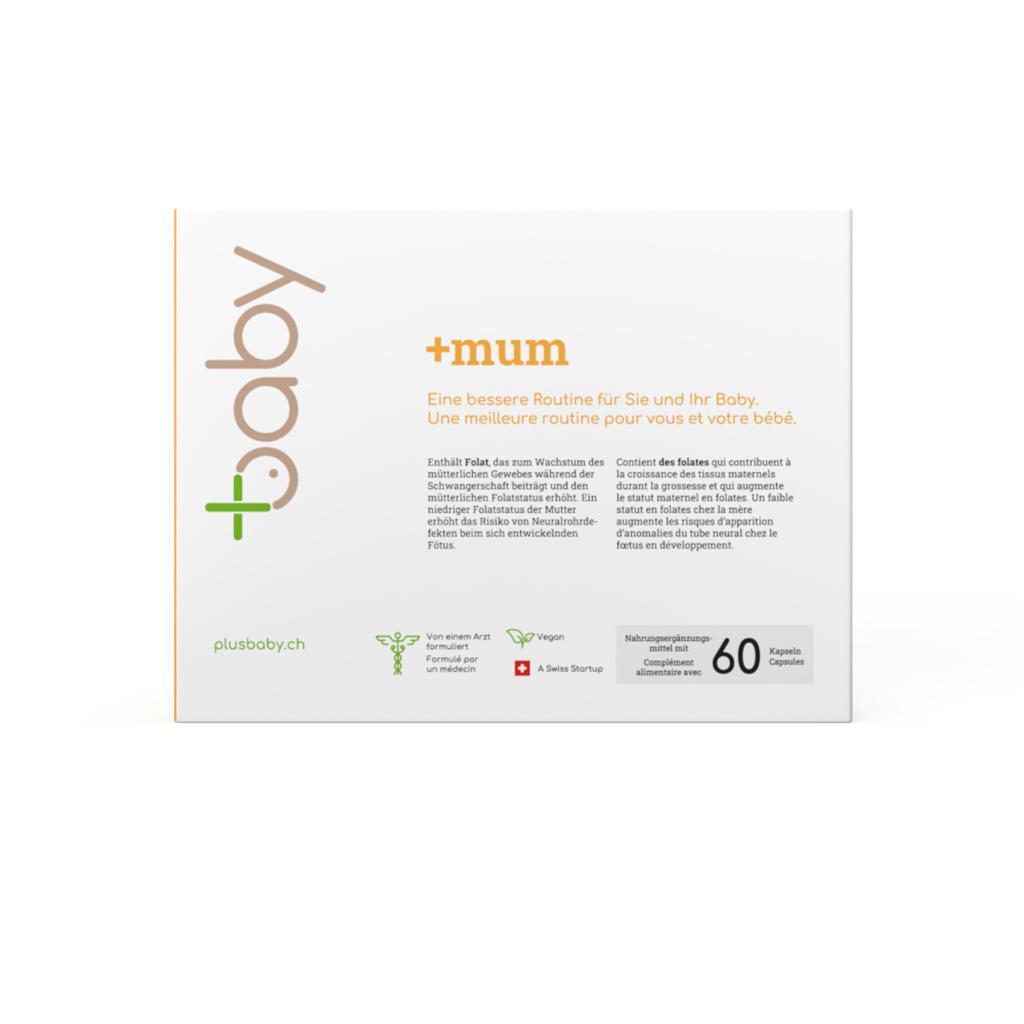
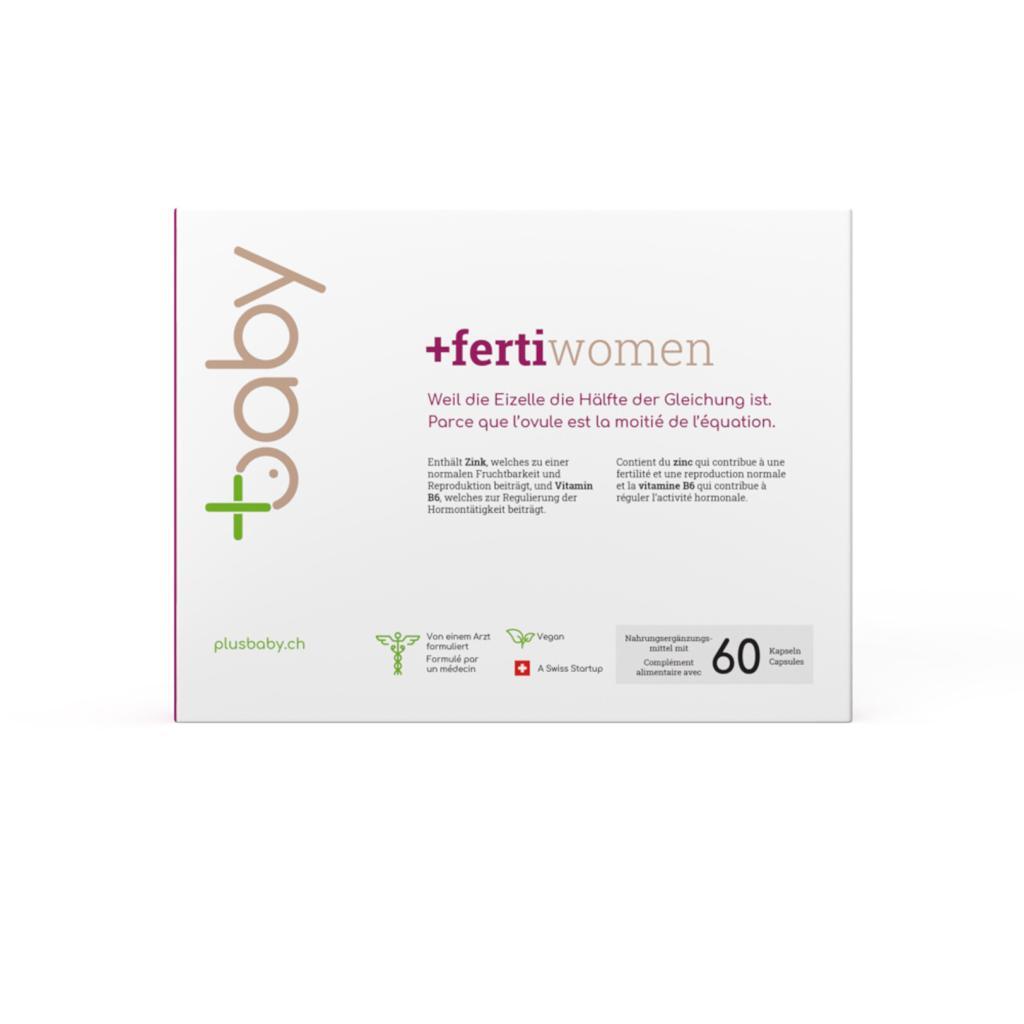
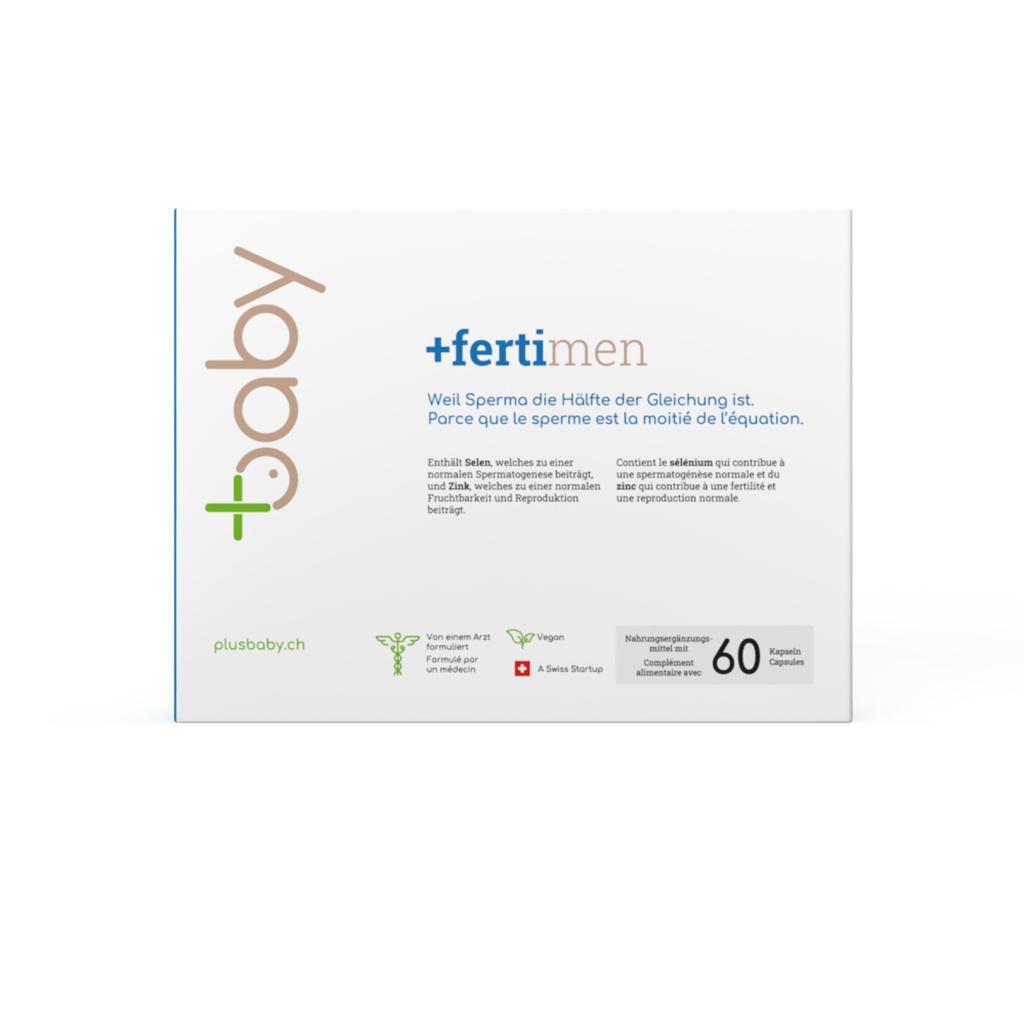
Certain circumstances justify an increase in the amount of folate, in particular a history of miscarriage, a history of a child with a neural tube defect and people taking medication for epilepsy. Ask your obstetrician-gynaecologist if folate supplementation is indicated in your case.
As well as preventing birth defects and pregnancy loss, taking a daily multivitamin containing folic acid 5-MTHF before and during pregnancy can not only prevent birth defects, but also improve the chances of achieving and maintaining a pregnancy.
If a woman is undergoing IVF, doctors often recommend taking more than 800 micrograms of additional 5-MTHF folic acid. This recommendation is based on a study suggesting a relationship between supplementation with certain micronutrients, including folic acid, and a greater chance of IVF success.
Folic acid is essential for all women of childbearing age, because of its crucial role in preventing neural tube defects from the very first weeks of pregnancy, often before a woman even knows she is pregnant. Adequate folic acid supplementation also helps to reduce other risks such as anaemia and promotes overall reproductive health.
The SwissFederal Office of Public Health (FOPH) is aware of the crucial importance of folic acid for maternal and foetal health, and has issued specific recommendations for folic acid supplementation. According to the FOPH, pregnant women and women planning a pregnancy are advised to take a daily folic acid supplement. This recommendation is part of an effort to prevent neural tube defects and other potential complications linked to a deficiency in this essential vitamin.
The FOPH stresses the importance of early supplementation, ideally before conception and during the first weeks of pregnancy, a crucial period for the development of the foetus’ nervous system. The daily dose recommended by the FOPH varies, but is generally set at around 400 to 600 micrograms, to ensure adequate intake for the mother and the healthy development of the baby.
These guidelines are in line with international standards and reflect a thorough understanding of the specific nutritional needs during this key period. The FOPH also encourages pregnant women to adopt a diet rich in natural folates, found in green vegetables, legumes and certain fruits, thus complementing folic acid supplementation for optimal nutritional coverage. This holistic approach aims to ensure a balanced diet, promoting the overall well-being of the mother and the healthy development of the unborn child.
In addition to supplements, it is advisable to eat a diet rich in natural folates. Leafy green vegetables such as spinach and broccoli, pulses such as lentils and peas, and enriched cereals are excellent sources of folate. These foods, in conjunction with appropriate supplementation, help to maintain the necessary levels of folic acid for optimal health before conception.
To achieve the recommended intake of 800 micrograms of folic acid per day through the diet, here are some detailed examples with measurements and weights:
It is difficult to achieve such a high dose every day through diet. This is why supplementation is recommended during conception, pregnancy and the postpartum period.

The first trimester of pregnancy is a critical period for folic acid supplementation, due to its essential role in the correct closure of the neural tube. This stage generally occurs within the first 28 days after conception, a period during which folic acid deficiency can lead to serious congenital malformations such as spina bifida.
Closure of the neural tube is a key process that occurs in the first few weeks of pregnancy. The neural tube is the embryonic structure that later develops into the brain, spinal cord and bones of the spinal column. During embryonic development, the neural tube forms and closes correctly, generally around the 28th day after conception. Inadequate closure of the neural tube can lead to malformations such as spina bifida, where the spine and spinal cord do not develop normally, potentially causing serious disability. Folic acid supplementation before and during early pregnancy is essential to reduce the risk of such anomalies.
The recommended doses of folic acid are of particular importance as soon as the desire to conceive arises. Women are advised to start taking around 600 micrograms of folic acid a day as soon as they are planning a pregnancy. This practice should be maintained throughout pregnancy and continued during the breastfeeding period. This continuous supplementation ensures an adequate intake of folic acid, which is vital for the healthy development of the foetus and to support the mother’s health during breast-feeding.
Medical supervision is crucial for managing folic acid deficiency during pregnancy. Health professionals can recommend specific dosages and monitor folic acid levels to prevent the risk of birth defects. Particular attention is paid to women with a history of neural tube defects or those at increased risk of folic acid deficiency.
Even after childbirth, it is essential to continue folic acid supplementation, especially during the breastfeeding period. This not only supports the mother’s recovery, but also ensures that the newborn receives the necessary nutrients via breast milk. This continuity is crucial to the baby’s health, particularly its neurological development.
A balanced diet rich in natural folates is important for maintaining adequate levels of this vitamin. Breastfeeding mothers should include folate-rich foods such as green vegetables, cereals and pulses in their diet.
Folic acid works in synergy with other nutrients, such as vitamin B12, iron and calcium. These elements play a crucial role in supporting maternal health and lactation. An appropriate balance of these vitamins and minerals is therefore essential for the mother’s well-being and the baby’s healthy development.
A deficiency in folic acid can lead to various health problems. A major risk is anaemia, characterised by a reduction in red blood cells. It can cause fatigue and weakness. Folic acid deficiency is also associated with foetal growth retardation and increased risk of neurological complications in both mother and child.
Although rare, excessive folic acid supplementation can present risks. Doses that are too high can mask a vitamin B12 deficiency, potentially leading to neurological complications. It is therefore important to follow medical recommendations for folic acid supplementation, taking care not to exceed the recommended doses. Medical supervision may be necessary to balance folate levels, especially in individuals with specific health conditions.

Including foods rich in natural folates is crucial for maintaining adequate levels of folic acid. Leafy green vegetables, fruit, legumes and fortified cereals are excellent sources. A varied and balanced diet helps to provide the necessary folates.
Taking folic acid supplements is recommended as soon as pregnancy is planned and should be continued throughout pregnancy and breastfeeding. It is important to follow the dosages recommended by health professionals.
Regular follow-up with blood tests and obstetric consultations is essential to monitor folate levels and ensure a healthy pregnancy. This means that supplementation can be adjusted if necessary and risks associated with deficiency or over-consumption can be prevented.
Folic Acid for Fertility & Pregnancy is essential for reproductive health, foetal development and the prevention of congenital malformations. For couples wishing to conceive, the +ferti range, comprising +fertimen for men and +fertiwomen for women, offers appropriate supplementation. In addition, +mum prenatal vitamins are specially formulated to support the health of mother and baby during pregnancy and breastfeeding. These products are wise choices for ensuring optimal nutrition during these critical phases.
Folic acid supplementation is essential not only during pregnancy, but also throughout the breastfeeding period. It is advisable to continue supplementing folic acid for the same number of months after the end of breastfeeding. This ensures a continuous supply of essential nutrients for both mother and baby, supporting their overall well-being. For optimal nutrition, the +ferti ranges for men and women, as well as the +mum prenatal vitamins, are suitable and beneficial choices.
